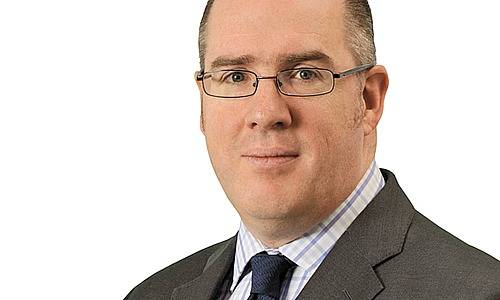BMO's David Moss: «We Like EFG International's Business Model»
David Moss is in the news as a proponent of the going together of EFG and BSI private banks. The fund manager at Canada's BMO Global Asset Management takes position against the many critics of the transaction in an interview with finews.asia.
Mister Moss, the fund you're managing is holding a stake in EFG International. Did you sell when you heard about the merger with BSI, like many others did?
No, we stayed put. But we will soon meet with EFG to hear about the transaction. In principal, we like the business model of the institute and the direction it is now taking.
Oh yes? There are plenty of critical voices to be heard and the company saw the need to answer a few uncertainties that had arisen in connection with the transaction.
It is correct to say that EFG has seen turbulent times in the past, but they weren't all of their own making. But EFG is a little different than other Swiss private banks.
«It will become difficult to retain both models.»
In what way?
The institute has less of a tradition, which also means it has less of a legacy. Furthermore, EFG has a very interesting compensation-model with its focus on the entrepreneurial customer adviser, making it strongly turnover-driven. This makes the bank interesting for experienced advisers, of whom many joined EFG last year. And they in turn attract an above-average level of new money.
But BSI has a completely different model, right?
That's correct, and we now need to try and understand how it works. It is pretty clear that it will become difficult to retain both models and brands, working alongside each other.
«It is positive that EFG International buys BSI below book value.»
So you are in effect skeptical about the merger?
Hang on, there are fundamental reasons speaking in favor of the merger. The fact that costs are rising in private banking – and that economies of scale allow to counter this development. You can also cut costs through the merger, not least in IT as you only need one platform. It is also positive that EFG buys BSI below book value. That way you don't pay a lot for goodwill that later weighs on your results.
Such as the goodwill Credit Suisse has written down? Why don't you invest in this banking giant?
In general, we invest in companies that are qualitatively outstanding, as cheap as possible and well managed. Which prevents us from investing in the volatile and little profitable investment banking. And that still plays an important role at CS.
CEO Tidjane Thiam has the brief to scale back the investment bank?
Yes, but until they've reached that goal, the bank is stuck in a period of uncertainty. That keeps us from investing. Ironically, it seems to be the price for not having had to change its business model quite as quickly as UBS – simply because it didn't do so badly in the financial crisis.
«Rich entrepreneurs have less time than ever to take care of their assets.»
And thus we ended up at the perennial comparison between UBS und CS.
UBS is one of the most important stakes in our portfolio. Its Swiss retail business yields handsome profits. The same is true of the key UBS Wealth Management unit. It is struggling, but keeps attracting assets. Private banking, asset management, that's what we like.
In Switzerland, the end of private banking is being predicted. Incorrectly so?
Swiss private banking has an interesting business in the era of white money. Rich entrepreneurs have less time than ever to take care of their assets. They need professionals, people they trust. They keep finding them at Swiss private banks. The industry can also guarantee the rule of law and stability to customers from countries in troubled areas of the world. That's worth a lot.
David Moss manages the investments in European shares for BMO Global Asset Management, working in London. UBS is one of the biggest stakes the BMO European Funds are holding. The economist worked for Barclays, before joining BMO in 1996. BMO Global Asset Management belongs to Bank of Montréal. The unit has 1,500 employees across the globe, manages 470 billion euros and is currently developing its presence in Switzerland.




























